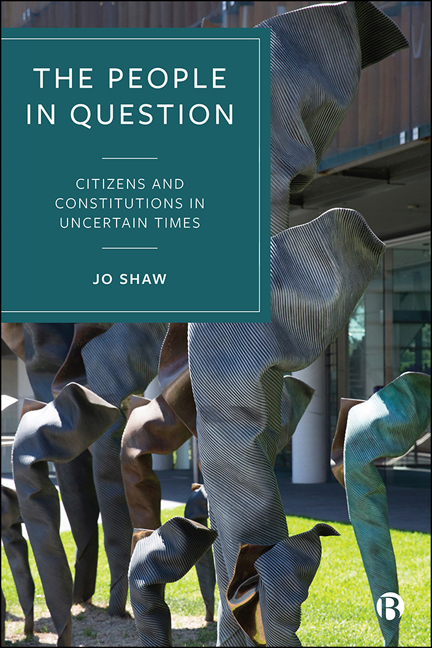6 - The Populist Challenge to Constitutional Citizenship: The Closing of Discursive Space
Published online by Cambridge University Press: 18 March 2021
Summary
Introduction
This chapter presents reflections on how constitutional citizenship is challenged by the practice of populist politics. It includes, among other examples, a short exposition of the remarkable explosion of populist politics in the UK, its move from the fringes to the mainstream and its impact on issues of citizenship, in particular in the context of the referendum on leaving the EU. This discussion is framed by further case studies focused on Canada, the US, Hungary and India.
Following the apparent triumph of liberal and constitutional democracy in the wake of the end of the Cold War and the fall of the Soviet Union, alongside the rise of human rights as both ideological framework and legal practice since the Second World War, some were inclined to suggest that ‘history’ had somehow ended, because the last ideological alternatives to liberalism and capitalism had been eliminated. Indeed, capitalism does seem to have triumphed (for now), but liberalism is not in such good health 30 years after the end of communism. Nationalism, and associated ideologies, have hardly disappeared, and now seem to live on, embedded within many ostensibly liberal democratic constitutional settlements. Astute commentators noticed this rather quickly. In the second decade of the 21st century, many aspects of nationalism have become central topics of political commentary, along with the discourse of ‘populism’, which seems to have become predominant, not just in authoritarian polities, or in Latin American countries with personalized presidential systems and high levels of socioeconomic inequality, but in more or less every polity, including those with well embedded parliamentary systems and liberal constitutional frameworks incorporating multiple checks and balances. We now live, many people have claimed, in an era of populism, or, as it is sometimes called ‘the new populism’. This is also reflected by the extended discussions of populism we can find in the media. However, the controversial topic of populism covers a much wider range of issues than can be discussed in this chapter.
It is ‘modish’ to describe more or less any sort of invocation of ‘the people’ within political discourse as being a manifestation of ‘populism’ (Walker 2019b).
- Type
- Chapter
- Information
- The People in QuestionCitizens and Constitutions in Uncertain Times, pp. 181 - 222Publisher: Bristol University PressPrint publication year: 2020



